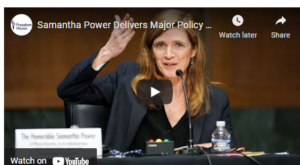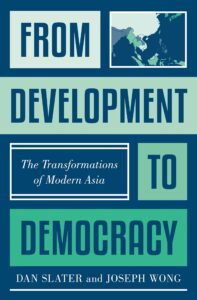 A study commissioned by USAID found that every $10 million of democracy assistance provided between 1992-2000 contributed to a 7-point jump on the Varieties of Democracy 100-point global electoral democracy index, USAID Administrator Samantha Power observes.
A study commissioned by USAID found that every $10 million of democracy assistance provided between 1992-2000 contributed to a 7-point jump on the Varieties of Democracy 100-point global electoral democracy index, USAID Administrator Samantha Power observes.
But the same study showed that these positive effects began to falter in the years after the 9/11 attacks on the United States. Between 2001 and 2014, the same amount of investment only saw an increase of a third of a point—still two and a half times more than the average annual change among countries in the electoral democracy index over that period, but a much more diminished impact than in previous years, she writes for Foreign Affairs:
At the core of democratic theory and practice is respect for the dignity of the individual. But among the biggest errors many democracies have made since the Cold War is to view individual dignity primarily through the prism of political freedom without being sufficiently attentive to the indignity of corruption, inequality, and a lack of economic opportunity….. But too often, the activists, lawyers, and other members of civil society who worked to strengthen democratic institutions and protect civil liberties looked to labor movements, economists, and policymakers to address economic dislocation, wealth inequality, and declining wages rather than building coalitions to tackle these intersecting problems.
 Democratic donor countries and private businesses must increase their investments in projects that elevate economic and social inclusion and strengthen democratic norms—decisions that ultimately yield not only more equitable results but also stronger development performance, Power insists. RTWT
Democratic donor countries and private businesses must increase their investments in projects that elevate economic and social inclusion and strengthen democratic norms—decisions that ultimately yield not only more equitable results but also stronger development performance, Power insists. RTWT
While largely agreeing with Thomas Carothers’ article, “Democracy Support and Development Aid: The Elusive Synthesis,” the evolving relationship between the democracy and development communities should be viewed in terms of increased complementarity, rather than integration, argued Kenneth Wollack and K. Scott Hubli.
To further this evolution, both communities should retire outdated stereotypes, increase political economy approaches and continue to learn from each other, they wrote for The Journal of Democracy. To advance more mutually reinforcing economic and democratic development assistance, aid providers should also strive to ensure that their programs “do no democratic harm” and that “country ownership” does not become government or ruling party ownership, as may be the case in countries with significant democratic deficits. RTWT







